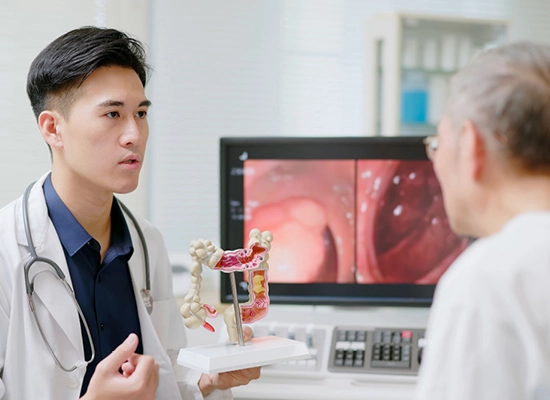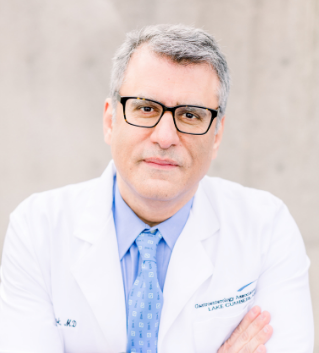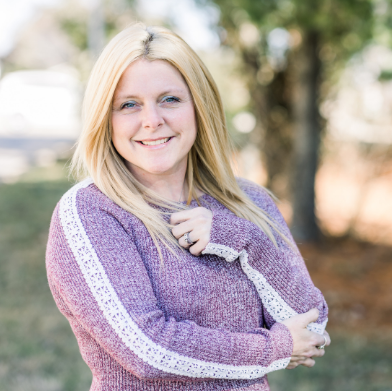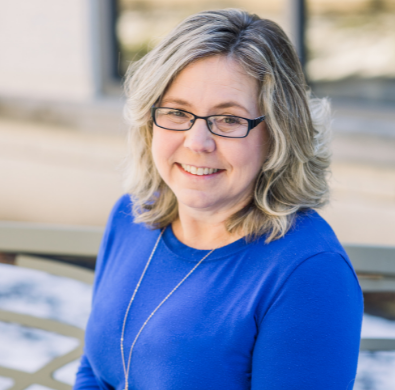Colon Health

Early Detection of Colon Cancer
Why get screened for colon cancer?
Screening may find diseases at an early stage, when a doctor has a better chance of treating or preventing the disease. The American College of Gastroenterology recommends screening for colon cancer:
- at age 40 for any person with a first degree relative with colon cancer.
- at age 45 for African Americans because they have an increased risk of developing the disease.
- at age 45 for people who are not at increased risk of the disease.
Next Steps
Find a Doctor
-(1).png?%2fimages%2fahlakecumberlandregionalhospitallibraries%2fdefault-album%2fsvhcolon-(1)-(1).png)
Kentucky has one of the highest colorectal cancer incidence rates in the United States. Between 2017 and 2021, the state's age-adjusted incidence rate for colorectal cancer was 45.9 cases per 100,000 people.
In 2020, Kentucky's colorectal cancer incidence rate was 41.5 cases per 100,000 people, higher than the national rate of 32.9 per 100,000.
These statistics indicate that, on average, approximately 1,400 new cases of colorectal cancer are diagnosed annually in Kentucky.*
*Kentucky Health and Family Services
Colonoscopy 101
What is a colonoscopy?
Colonoscopy is a procedure that uses a long, flexible, narrow tube with a light and tiny camera on one end, called a colonoscope or scope, to look inside the rectum and entire colon. Colonoscopy can show abnormalities of the lining of the large intestine.
Why is a colonoscopy performed?
Some of the reasons a colonoscopy may be performed include but are not limited to:
- screening for colon cancer
- changes in bowel habits
- abdominal pain
- bleeding from the anus
- unexplained weight loss
- a family history of colon cancer

The most important think you can do for your health is to schedule a colonoscopy in order to be screened for colon cancer.
Dr. Samir Cook
Gastroenterologist
Preparing for a colonoscopy:
Be sure your doctor knows about any medicines you are taking. You might need to change how you take them before the test.
Your doctor will give you specific instructions. It’s important to read these carefully a few days ahead of time, since you may need to follow a special diet for at least a day before the test and to shop for supplies. If you’re not sure about any of the instructions, call the doctor’s office and go over them with the nurse.
You will probably also be told not to eat or drink anything after midnight the night before your test. If you normally take prescription medicines in the mornings, talk with your doctor or nurse about how to manage them for the day.
Because a sedative is used during the test, you’ll need to arrange for someone you know to take you home from the test.
REAL PATIENTS. REAL STORIES
ASHLEY'S STORY
When Ashley Loudermilk, a 37-year-old mom, underwent her first diagnostic colonoscopy in 2019, she had no idea that her life would quickly change. Diagnosed with stage 3 colorectal cancer, Ashley shares her story of diagnosis, treatment and survival and urges others to get screened, as well.

What to expect during the test:
The test itself usually takes about 30 minutes, but it may take longer if a polyp is found and removed. Before it starts, you’ll be given a sedating medicine (into a vein) to make you feel relaxed and sleepy during the procedure. For most people, this medicine makes them unaware of what’s going on and unable to remember the procedure afterward. You’ll wake up after the test is over, but might not be fully awake until later in the day.
During the test, you’ll be asked to lie on your side with a drape covering you. Your blood pressure, heart rate, and breathing rate will be monitored during and after the test. Your doctor might insert a gloved finger into the rectum to examine it before putting in the colonoscope.
The doctor will look at the inner walls of the colon as he or she slowly removes the colonoscope. If a small polyp is found, it may be removed. This is because some small polyps may become cancer over time. Removing the polyp is usually done by passing a wire loop through the colonoscope to cut the polyp from the wall of the colon with an electric current. The polyp is then sent to a lab to be checked to see if it has any areas that have changed into cancer.
If your doctor sees a larger polyp or tumor or anything else abnormal, a biopsy may be done. A small piece of tissue is taken out through the colonoscope. The tissue is checked in the lab to see if it’s cancer, a benign (non-cancerous) growth, or a result of inflammation.
REAL PATIENTS. REAL STORIES
RITHA'S STORY
After continually hearing the importance of screening and early detection for colorectal cancer and due to her age, Ritha Morrow finally decided to schedule a colonoscopy. That one decision saved her life. Ritha shares her story after being diagnosed with colon cancer and urges the community to be proactive with their health and schedule a screening, today.

